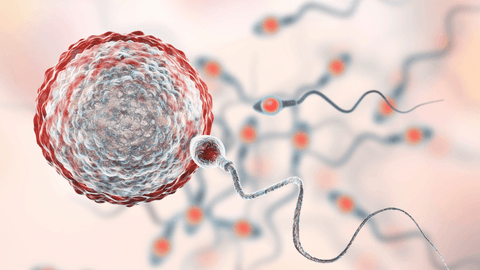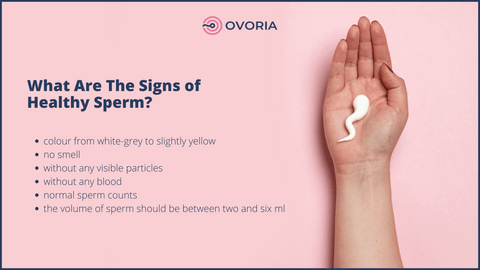Low Sperm Motility: Symptoms, Causes and Fertility Treatments
If intended parents have trouble conceiving naturally, they may want to consider fertility testing. As part of that testing, the male partner needs to undergo a semen analysis - the main male fertility testing for men. This comprehensive test helps doctors determine whether or not the man's sperm is compatible with conception. The analysis measures the sperm count, motility (movement), and morphology (shape).

What is Sperm Motility?
Sperm motility is the speed at which swimmers are moving. It's measured by the percentage of sperm production and sperm quality that are motile (AKA moving) and the progressive forward speed.
Signs of Healthy Sperm
Signs of healthy sperm include:
- Colour from white-grey to slightly yellow
- No smell
- Without any visible particles
- Without any blood
- Normal sperm counts
- The volume of sperm should be between two and six ml

What is Low Sperm Motility?
Male infertility is a common problem, affecting up to one in six men. About 90% of infertility issues are related to sperm count. However, poor sperm motility also contributes to infertility. When a man has low levels of sperm in his semen, it means that fewer sperm are travelling along the long trail from the cervix to the fallopian tubes, so the chances of one sperm reaching the egg are reduced. With low motility, the possibility of that one sperm fertilizing the egg becomes even more difficult. Low sperm motility means it's harder for the sperm to swim forward. This is known as asthenospermia or asthenozoospermia and is diagnosed when more than 32% of the sperm can swim forward. Many men with a low sperm count may also have low sperm motility, and that condition is called Oligoasthenospermia. Some men with otherwise normal sperm have sperm that move slowly and poorly. The DNA inside such sperm is more likely to be damaged.
Symptoms of Low Sperm Motility
Symptoms of low sperm count can include:
- Trouble conceiving
- Problems with sexual function
- Decreased facial or body hair
- Hormonal imbalance
- Pain during ejaculation
- Decreased sex interest
Causes of Low Sperm Motility
Very often it can be hard to define the cause of low sperm count. The low sperm count can be affected by some medical issues:
- Ejaculation problems
- Varicocele
- Infection
- Hormone imbalances
- Chromosome defects
The low sperm count can be affected by daily habits:
- Alcohol consumption
- Drug consumption
- Depression
- Smoking
- Occupation
- Weight
- Poor diet
- Excessive heat
Risk Factors
There is a list of risk factors that can affect fertility, sperm health, sperm count and cause low sperm count:
- Taking bodybuilding supplements ( anabolic steroids)
- Smoking
- Drinking alcohol
- Taking certain medications
- Being overweight
- Diabetes
- Depression or stress
- Testicular trauma
- Radiation therapy
- Having infections
- Undergoing medical treatments
Fertility Treatment Options for Low Sperm Count
In case of a couple are facing issues of low semen motility while trying to conceive and have tried all home remedies, taken vitamin supplements and even managed lifestyle changes without any luck, then the best course of action would be visiting an infertility specialist. If low motility is found due to some hormonal disorders, then treatment might be possible. If a genetic cause is responsible for low or no motility, then assisted reproductive techniques (ART) might be recommended.
IUI (Intrauterine Insemination) is a procedure where healthy, mobile sperm are injected directly into the uterus. The sperm is therefore not required to swim any long distance, making it easier for them to reach the egg. But this procedure will improve sperm motility in males with less than 30-40% motility.
IVF is recommended when IUI fails and when the sperm motility rate is lower than 30%. This process uses in vitro fertilization (IVF). The embryo is fertilised outside the body, usually in a petri dish. Then the embryo is transferred to the uterus in order to establish a successful pregnancy.
ICSI (Intracytoplasmic Sperm Injection) is recommended for men with severe motility issues. If a man has motile sperm, then the chances of being able to conceive a child through a single sperm injection procedure are about 70-90%.

